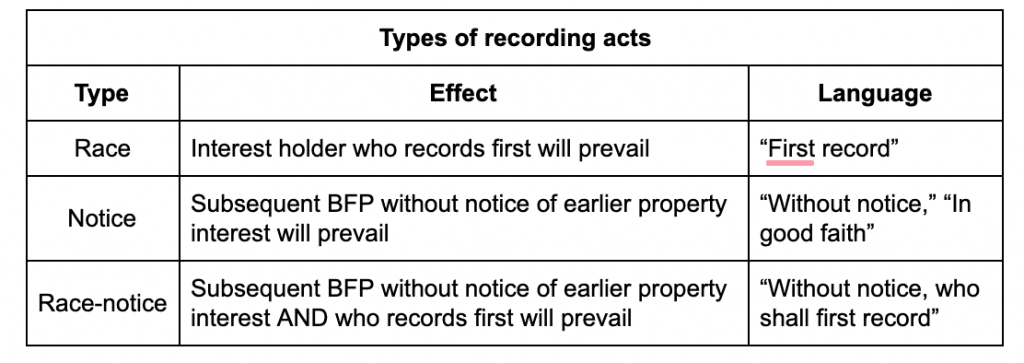Recording acts consistently appear on the MBE®, but the bar examiners rarely tell you which act has been adopted in a particular jurisdiction. Instead, they give you language from the act and leave it to you to figure out which type of recording act you’re dealing with. Luckily, this task is pretty simple! Just read through the act and circle the following key words:
- “first record” or “recorded first” = race act
- “without notice,” “lacks notice,” or “in good faith” = notice act
- a combination of the two (e.g., “without notice, who shall first record”) = race-notice act
Once you identify the type of recording act, simply apply it to the facts to determine who wins:
- Race – whoever records first will prevail
- Notice – a subsequent bona fide purchaser who lacks notice of an earlier interest will prevail
- Race-notice – a subsequent bona fide purchaser who lacks notice of an earlier interest AND records first will prevail
Here’s a table that pulls this all together:

Remember that recording acts only apply to subsequent purchasers. The common law “first in time, first in right” rule controls if the subsequent interest holder received the land as a gift, in a will, or pursuant to a lien. Under this rule, the person who received an interest in the land first prevails.
Use this tip when answering practice questions in the UWorld MBE QBank. Click here to access our QBank or purchase a subscription.




